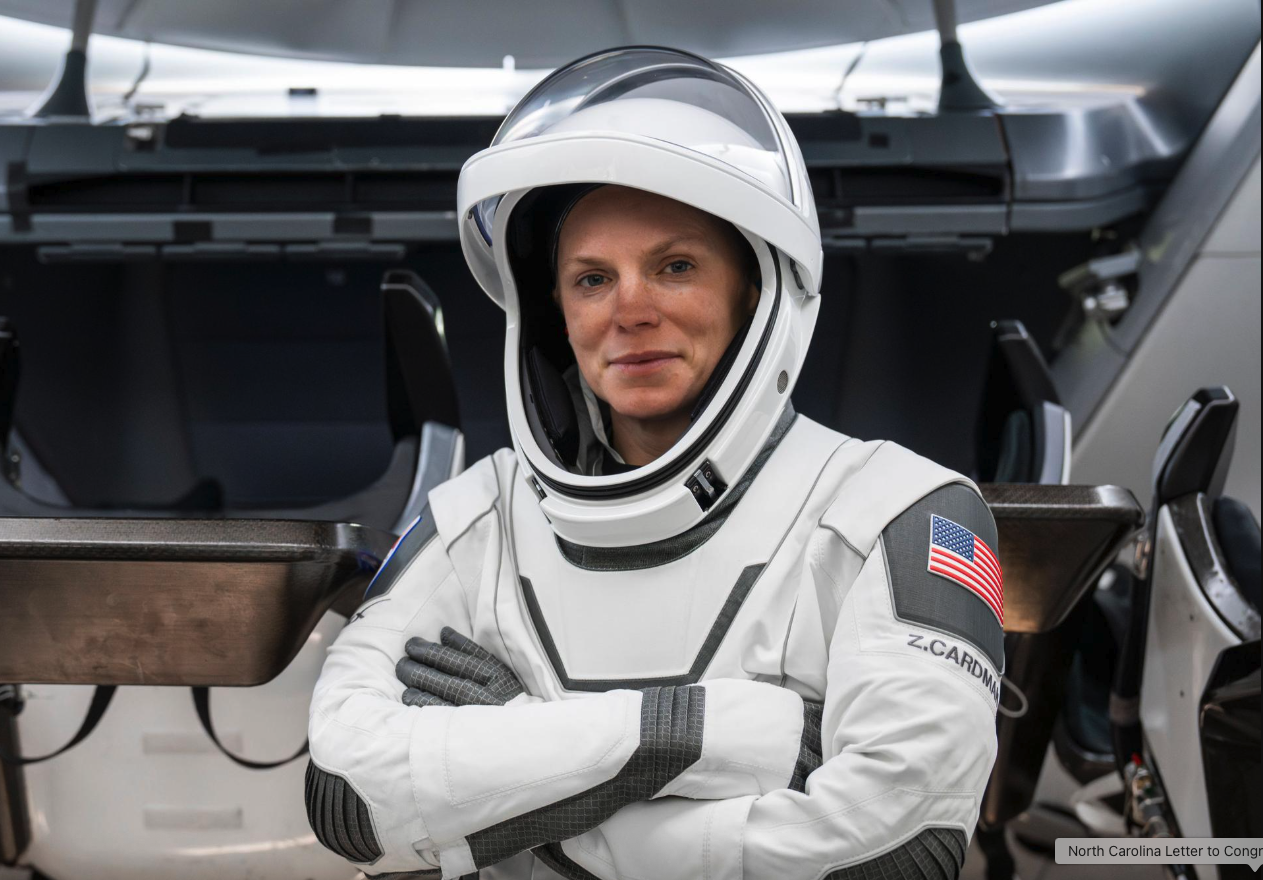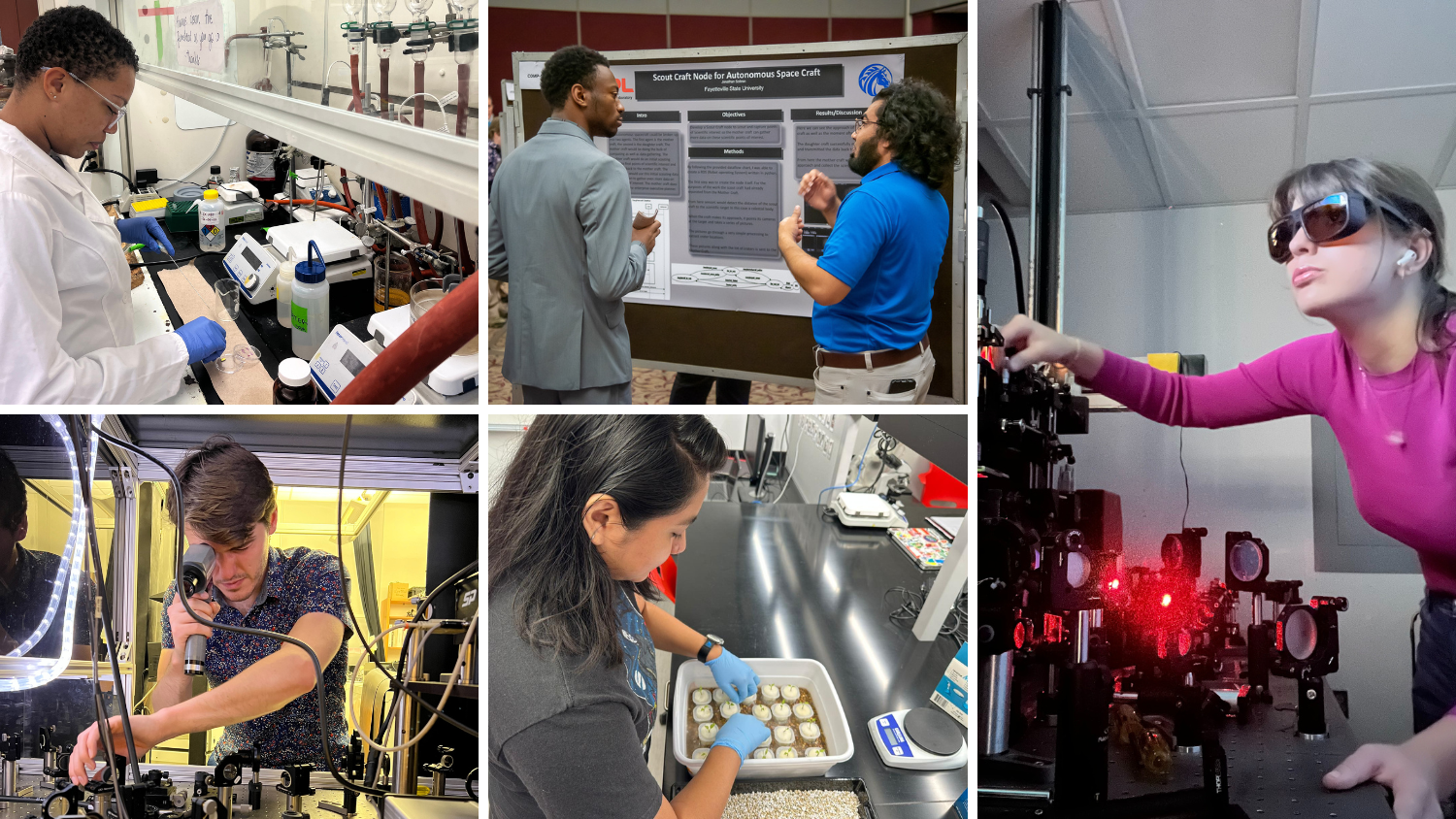NC Space Grant Announces 2021-22 Team Experience Award Winners
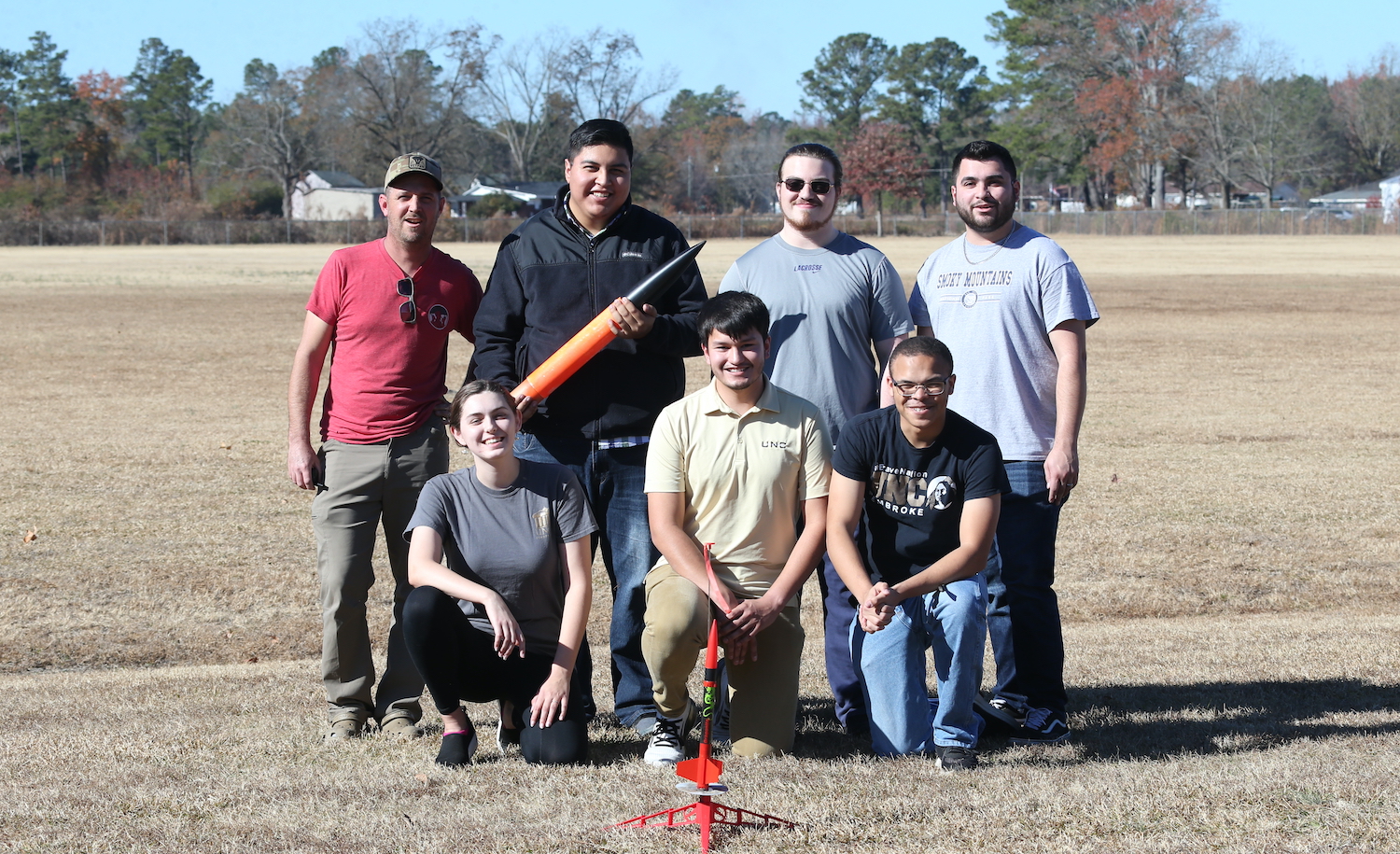
Above: The University of North Carolina at Pembroke’s Rocket Team will compete in the NASA First Nations Launch Competition.
NC Space Grant is excited to announce the winners of this year’s Team Experience and Competition Awards, which help undergraduate and graduate teams participate in competitions either sponsored or sanctioned by NASA or other STEM-related organizations. Competitions are in the fields of engineering, science, technology and/or mathematics (STEM), and complement the academic studies of the team members. These opportunities help students develop the skills and knowledge base, as well as build the strong teamwork capabilities, necessary to succeed in STEM careers in the future. Competitions must provide students with hands-on experiential learning opportunities related to one or more of NASA’s Mission Directorates: aeronautics research; human exploration and operations; science; and space technology.
This year, NC Space Grant is sponsoring 11 teams.
Congratulations to the follow teams!
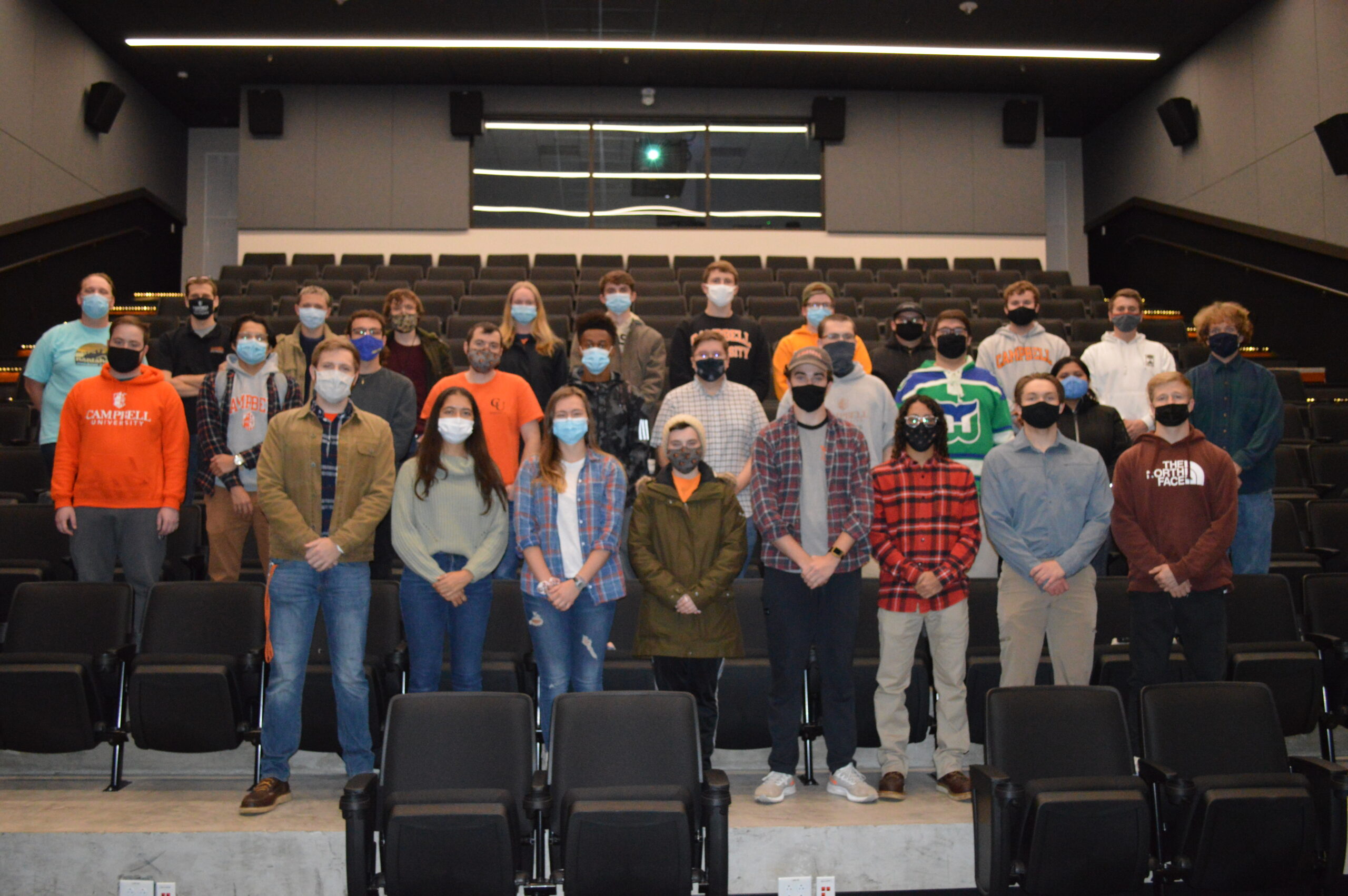
Campbell University, NASA Human Exploration Rover Challenge (HERC)
The NASA HERC competition challenges students to create human-powered vehicles for terrain on a simulated terrain of another world. Rovers are designed to travel through various types of environments.
Fayetteville State University, NASA MUREP Innovation Tech Transfer Idea Competition (MITTIC)
The NASA Minority University Research and Education Project (MUREP) Innovation Tech Transfer Idea Competition (MITTIC) is a spinoff challenge that helps NASA develop new ideas for commercialization by utilizing concept papers from student teams at Minority Serving Institutions. These teams are multidisciplinary in nature and choose a NASA Intellectual Property to explain commercial viability through the concept papers. This competition exposes students to research facilities and provides the opportunity to discuss concept development. Selected MITTIC students are also invited to a paid NASA internship that is funded by MUREP.
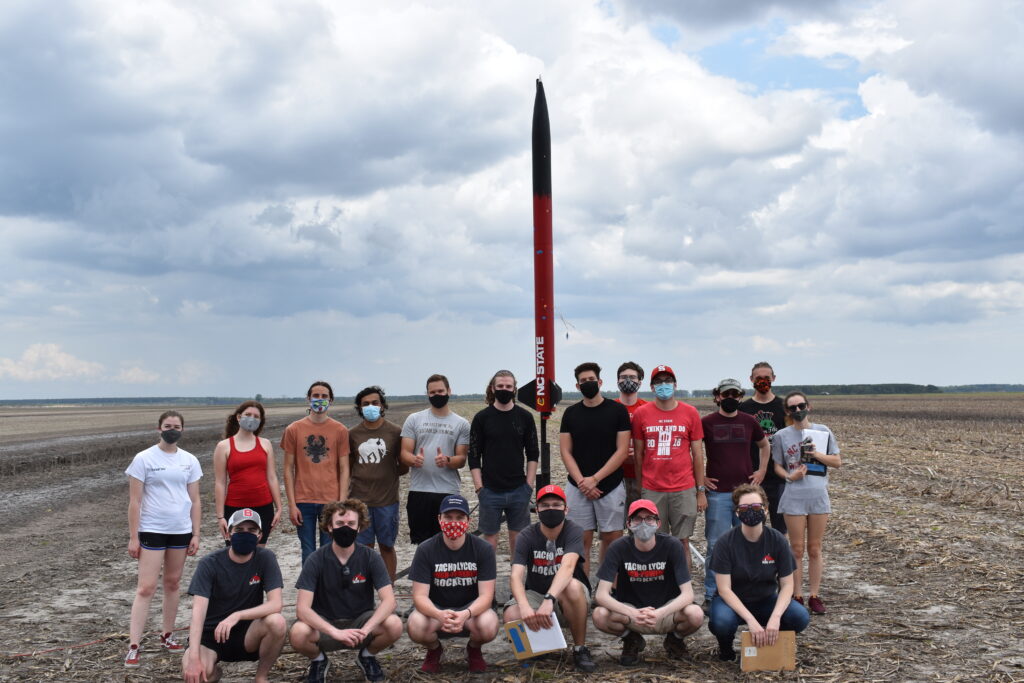
Lenior-Rhyne University, Spaceport America Cup
The Spaceport America Cup, sponsored by the Experimental Sounding Rocket Association, challenges teams to design, build and fly rockets with a payload size of 8.8 pounds. Rockets are typically 8-20 feet long and are expected to reach a target altitude of 10,000 or 30,000 feet.
North Carolina State University, AIAA Design-Build-Fly
The 26th annual AIAA Design-Build-Fly competition challenges students to test aircraft that can deliver vaccine components. Competition includes deploying vehicles, staging vaccination syringes, and delivering environmentally friendly vaccine vial packages.

NC State University, AUVSI International Student Unmanned Aerial Systems (UAS) Competition
The AUVSI Student UAS competition challenges students to design and fly unmanned vehicles with payload sensors that execute a specific series of tasks.
NC State University, AUVSI Robosub Competition
Robosub is a competition that provides the opportunity for engineering students to design, build and test autonomous underwater vehicles. Teams perform realistic missions that simulate a NASA mission.
NC State University, NASA Student Launch
During the NASA Student Launch Initiative students take on the challenge of designing and building payloads or vehicle components that support space launch systems, while providing cost-effective research into payload systems. Teams will then fly their designs on launch day.
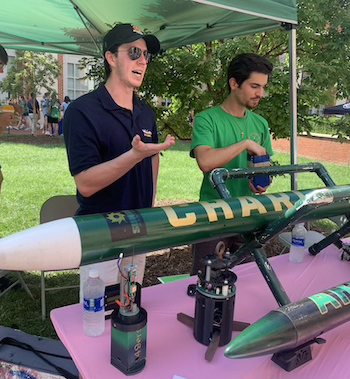
University of North Carolina at Asheville, NASA Lunabotics
The Lunabotics competition provides students with the opportunity to build a full-scale engineering project from start to finish. This challenge implores students to build robotics that would be used on the lunar surface and present work to a NASA review panel.
University of North Carolina at Charlotte, NASA Lunabotics
UNC Charlotte, NASA Student Launch
University of North Carolina at Pembroke, First Nations Launch Competition
The NASA First Nations Launch Competition is geared towards Tribal Colleges, Universities and the American Indian Science and Engineering Society (AISES). Students design, build and launch high-powered rockets.
- Categories:
